This exchange programme was not something which I ever managed to experience, since just a few years after starting school, tanks rolled into Moscow and the Perestroika took place. My terrified mother took me and we both moved to the United Kingdom – the one country whose education system she believed was truly better than that in the USSR. Living out of a small room near Regent’s Park, I attended the International Community School, trying to improve my English, and she worked in an office and tried to settle in in what was to me a great adventure, but to her an alien and drastically different world.
As I progressed through my studies at the International Community School, I found languages easier than most because I had already learnt a second one and understood the structure of learning, and in the evenings my mother would take me to the park and give me never-ending mathematical problems to solve. By the time I was 11, I successfully passed, with the highest grades, GCSEs in Maths, French and Russian.
Throughout my childhood I loved to read, and my father, whose PhD was in Engineering Ecology, passed on to me a love of nature and the environment. As a hobby, I would always write stories about animals, and my mother and I decided that this was something we should take further. We had just moved over to the UK, did not have a large social circle, and so had a lot of free time to work on a book. I would write stories, and my mother would turn them into chapters of a series of books called “Fun Ecology For Children”. We managed to publish three – “Treasure of the North”, “Neptune’s Kingdom” and “Children of the Galaxy”. Each was written by children, for children, and was both entertaining and educational. The first two books were taken up by the state of California and used across the school system in an experiment to educate children. Although the books are long out of print, they occasionally pop up on the internet – “Neptune’s Kingdom”My mother was always the smartest person I knew, and she quickly became aware that the International Community School was not truly part of the great British education system. In order to make her sacrifice worthwhile, she needed to get me into the main system. We interviewed everywhere, from University College School to Westminster Under School, and it was her persistence at Westminster that finally got us an interview with the Headmaster, after which I was allowed to enter the school at the age of eleven.
The public school system offered both challenges and rewards. I had never learnt Latin, something that all of my classmates were well versed in, and I had to take this up in the evenings in order to catch up. However at the same time, I had access to activities like fencing – the likes of which I’d never dreamed of. With only two years to go before the transfer to secondary school, we started applying, and getting rejected by every top school in the country. I had not demonstrated enough achievement to be able to get on the lists, which had been closed a long time ago for schools which begin registration the moment a child is born. The only way around this was to study harder, and I used my Eton rejection letter to inspire me to learn Ancient Greek in the evenings and to take the Scholarship exam. Two years later, I came 5th in the country, and was granted a Scholarship to come to Eton. My parents returned the Bursary, but my place as a King’s Scholar is an achievement which I treasure to this day. At the same time, I validated my hard work by also becoming a member of Mensa with an IQ of 175.
Starting Eton was a difficult transition for the entire family. I had never been away from my mother, and she had never been away from me. My father was not used to being told that he could not take me out of school for the few days that he would visit every month, and the Master-in-College was certainly not used to a Russian family and all of the culture clashes which that entailed. I am, till now, the only first-generation Russian to have become a King’s Scholar. I settled into life at a boarding school, my mother moved from London to Windsor, and my father started to come over during the official school breaks, and finally things were well. I took up rowing, became the Editor of the school magazine and started to immerse myself in theatre.Under the guidance of my House Master, Dr. Spence, I spent the first three years of Eton translating two works of Nikolai Gogol into English, “Gamblers” and “Dead Souls” – plays which had not been translated professionally before and had not been put on in the UK. With Dr. Spence’s direction, my translations were put on at Eton, where I also participated as an actor, and then in Edinburgh and professionally in London. The translations were registered at the Library of Congress in the United States of America, and I was given a medal for services to culture by the United Nations Educational Scientific and Cultural Organisation.
My mother had always been very strict about television and computer games – 20 minutes on Saturdays and Sundays only. Thinking back on it now, this was a fantastic strategy and meant that I had no choice but to dedicate myself to studying and hence to achievement. However as I got into the third year at Eton, and was allowed a computer, studying took a step back to fiddling with hardware and learning to program. I focused hard on the subjects which I was enjoying at GCSE, and mainly ignored the humanities which I was not so interested in. I took a further 12 GCSEs, getting 10 A*s and 2 As, but did not have the option of taking Computer Science. This did not prevent me from getting banned from using the school computers, twice, for various hacking-related pranks, something that had also happened at Westminster Under School.
As I became a young adult, and entered the last few years of school, I knew that computers were what I wanted to dedicate my life to, but I did not have enough training nor experience in them, and had to choose the subject I would study at university. Having always been ahead of my peers in mathematics, it was a clear choice, and my mother had always wanted me to go to Cambridge – so the decision was made. My teachers advised me that I should read some mathematics books in my spare time, which I did, and to prepare for the STEP exams that were a requirement of studying the subject at Cambridge. I had always come in the top three in the various mathematics Olympiads and thought that I would have no problem achieving a place at Cambridge.
I could not have been more wrong. The STEP exams proved to be fine, but as I went up for an interview at Gonville and Caius College, I quickly realised that the others sitting in the waiting room had been doing nothing but mathematics for years. They had spent time in mathematics holiday camps, they genuinely read maths books for pleasure, rather than for the interview as I had done, and the main hobby that they most enjoyed was actually solving mathematics problems. I found myself completely out of my depth, and did not get offered a place at Caius. A few weeks later, however, I was called in to Girton College for a second interview, and based on the fact that I was taking 6 A-levels, at a time when people were just taking 3, they were kind enough to take a chance and give me an offer, albeit deferred by a year.
Knowing that I had a year of freedom, I contemplated life plans and career options. Although the summer was spent travelling with friends, the usual gap year plan of travelling around the world did not appeal to me, as it would mean that I would fall a year behind in terms of achievement, and I had a lot of catching up to do before I could step out of my father’s shadow. I read incessantly, seeking advice about the best strategy for success, and settled on property as something I wanted to go into. At the time, conditions in the market matched that of the 80s, when it was possible to set up a passive income by borrowing from the bank and investing in rental property. It was 2002 and the boom was in full swing. Within a month of turning 18, I had organised a buy-to-let mortgage, and my father was kind enough to give me a deposit for a rental flat. By the end of the gap year I had bought another one, and went off to Cambridge sure that I would get through it by spending a few hours a week on studying, leaving me time to concentrate on building up the property portfolio in the meantime.There were four of us, all King’s Scholars, who went up to Cambridge. I was the only one who took a gap year, so the others went up the year before. By the time I arrived, two had dropped out. One left for a lower-tier university, and the other had returned to study Computer Science. That should have set off alarm bells, but at that age that’s not how your mind works. In our first class, we were told that as a minimum, we should expect to do 40 hours of mathematics a week. I sniggered – the concept was beyond anything I assumed was possible. I could not imagine doing more than a few hours a day on a single subject, and assumed that the teachers were saying that as a huge exaggeration aimed at scaring those who were less hard-working and talented. Clearly that was the same mistake that my friends from school had made, and I found myself at the start of the second term, completely lost and confused, unable to understand the mathematics which was being thrown at me at a pace I’d never experienced before. I contemplated changing to Computer Science, or Economics, but in the end decided to stick it out.
I was continuing to expand my property portfolio, and so spending a lot of time in London. By this point my mother was not well, and it was the first time I was truly away from her, both in terms of distance and length of time. As the second year material got even harder, I started spending more and more time in London, working and seeing her. I was not enjoying Cambridge anymore – I could not comprehend how I was unable to keep up, and I could not spend more than a few hours a day on mathematics without getting irritated and disappointed. By the third year, I was commuting to lectures from London, every day, and was so lost and confused that I had no idea where my life was going to go. My time at Cambridge was cut short by a terrible tragedy, and I returned to London, trying to rebuild my life.
I knew that I needed to direct my energy towards something productive. A friend of mine had a company, Mr. Fix It, which he was using to do small property renovations, and we started having daily dinners, discussing the possibility of combining that with my knowledge of technology. After a few months of planning, in 2006, we founded Interactive Art. We would create high-end smart homes, containing the latest integrated technologies such as distributed video and automated curtains.I designed the systems, we outsourced the installation work to a contractor, and my friend’s team would do the design and renovation. The first step was to create a show flat, to demonstrate to ourselves that we could do it, and to have something to show prospective clients. I am living in that flat to this day, and although the design has aged very well, few of the electronic systems still work as they should. The issue was not the design of the system, or the quality of the hardware – it was that the systems were new and cutting edge, and so required regular maintenance to work correctly.
We did one other flat, for a client, with Interactive Art, and this time the system was simpler, and hence more reliable. The maintenance work was still outsourced to the engineering contractor, but the fact remained that the technology just wasn’t perfected, and reliability issues meant that we would spend significant time dealing with problems even after the project was completed. The margins were too small to take on that kind of time-consuming hassle, and we decided not to continue.
What Interactive Art did achieve, however, was to teach me the process of setting up a company, making it much easier to set up the next one. My property investment portfolio had grown to four flats since 2002, and in 2009 I set up Park Street Estates – a high end property management company which used the internet for marketing purposes and was aimed at Russian clients in particular. The idea came out of an obvious opportunity. Since I was already letting out four apartments, I knew that I could bring these in-house and save on commission costs.
Gaining access to the market proved simple – we built a custom website which integrated with the management software and the various property portals, and promptly let out the four apartments. Getting new instructions was difficult, with prime central London being a highly competitive market for letting agents, but at the end of the first year we were managing ten properties, and building our reputation based on great customer service and excellent performance. Three years into the business, we became recommended by the management of Point West as the best agents to manage properties in the building.
There was a lesson which came out of Park Street Estates as well, and that was that people have an intrinsic hatred of estate agents. It did not matter that I had set up the company, and that we were based around a concept of excellent service – anyone I spoke to instantly treated me as they would a pushy and uncaring salesman from Foxtons. There was potential to expand, and the lettings market was projected to grow from strength to strength, but I did not see myself in ten years’ time being known for setting up a chain of lettings agencies.
To keep my creative side stimulated during these years of doing property, I continued my literary career as well. I had experienced a profound shift in attitude towards Russians in the United Kingdom. When we first moved over, it was hard for my mother to even find someone to make friends with, whereas now it is hard to walk around the centre without hearing Russian being spoken every few minutes. At the end of 2006, Alexander Litvinenko was assasinated in London and all hell broke loose. Diplomats were expelled from both countries, and Russians were publicly labelled as evil. I had experienced some of this social shift myself, and this got me thinking about what could be done to prevent this alienation.
After some research, I came to realise that the times when the Russian and British people were closest were when we had a common enemy that made this bond stronger. In the end, it was the Lend-Lease programme of World War II which I chose to write about, inspired by the stories of the veterans who had lived through it. Together with a team of researchers, I held hundreds of interviews of both British and Russian veterans, and turned their stories into a book which would remind us all about how close our two nations once were – Russian Convoys – Memories of the heart.After the book was published, the majority of copies were given to museums and charities to sell on, and copies were sent to all the veterans who helped make it happen. Further copies were given out during medal presentations at the Russian Embassy and on the HMS Belfast, as well as at the traditional ceremonies celebrating Victory Day in London – Veterans receiving a book by Ivan Mazour. It was an honour to meet these veterans who had lived through times so hard that we simply cannot comprehend them, and to have been able to make this small difference to them, and to the people of Russia and the United Kingdom.
In the way that things seem to usually work, a new opportunity arose through my time setting up Park Street Estates. In the early stages, I performed every task myself, training the two people who are now the lettings managers. On one occasion a friend of mine from Cambridge recommended my company to her friend, and I personally showed her around a number of apartments. These were split-commission deals through other agents, and the apartments proved awful, but at the meeting I found out that she had recently completed her studies at Harvard, had a job at a consultancy firm that she did not particularly like, and as a past time helped her friends get into top US universities.
I had written many people’s UCAS statements back when we were all applying to university, and had always wanted to get into the admissions consultancy business, since it was so perfectly synergistic with a company which provided property services for foreign clients. So, in 2010, we incorporated an admissions consultancy. I arranged the infrastructure and brought in the clients, and my business partner carried out the consulting work and helped them gain admission to top universities – sometimes in the UK, but mostly in the US.
Introducing myself as someone who ran a company in the education sector was a breath of fresh air. The people we were meeting were extremely interesting individuals, and always treated us with respect. There was huge demand, and no real competition in London at the level that we were working at. The fees we charged went from £5k to £25k per client in just under two years. After the first year, previous clients referred new ones, and my business development role was no longer necessary – the company had a life of its own. As I stepped away, the quality of service that the company provided started deteriorating, with many clients getting angry at not being treated well. Fixing these relationships would take a large amount of time, but would not give a worthwhile reward.This experience showed me how it was possible to set up a profitable business with absolutely no capital investment, by selling knowledge and expertise that was in demand. Unlike my property investment, or even Park Street Estates, both of which required small initial investment, we only incorporated after we received a cheque from our first client. However, it was not scalable. We were able to take on about ten clients a year, but any more than that meant that they would not receive the quality of service that was required for the price which we charged. So I found myself with a profitable business which was well respected and which offered many opportunities to meet interesting people, but one that did not satisfy my desire to create and grow a large successful company. It also taught me the absolutely vital importance of carefully choosing your business partner or co-founder.
It was time to take my experience and think on a larger scale. Park Street Estates was being handled by its staff, who were also ensuring that my property portfolio was managed, and the admissions consultancy paid dividends without any further involvement. I was free to focus on the next venture. In yet another demonstration of life’s serendipity, I found myself in a meeting between my father, an old friend of his, and his friend’s son who turned out to be my next door neighbour. We had lived next to each other for a year but never spoken or realised the family connection. He had recently completed his studies in Finance and was working in a bank, but was looking to do something with better prospects. I had spent my spare time over the previous three years completing an Bachelor’s degree in Economics with the Open University, and was also looking to capitalise on the knowledge I had gained.
We quickly found a common ground in our interest in computers and technology, and began discussing ways to get involved with the sector. He suggested that we set up a company building high-end customised computers, but I had already had my small business experience and wanted to go bigger. In the end we settled that we would use property development as a stepping stone to generating sufficient income to invest in online technologies – both other companies, and our own ventures. We called our company Innova Kapital, took on a project manager and a site manager, and started to carry out construction and development projects.
It was early 2010, the first wave of the crisis had abated, and property was looking up. I had almost a decade of experience in property, we both had some capital, and my business partner had access to a great network of people who were interested in investing in property development. Our first project, a seven house gated community in Guildford, we did with just our own capital and bank finance, but since then we have stopped taking loans and have been working with equity partners on even larger projects. I won’t go into the details here, but I’ve written case studies for some of the developments, which can be downloaded from the Innova Kapital website.By the third project, I was once again able to take a step back from the business, to let the team run it, and focus on the new main goal – online technologies. Being a technology entrepreneur had both the cachet, and the opportunity to scale up that I was looking for. I knew that this was the industry I needed to be in, in order to retain my focus and interest, and not switch to a newer and better opportunity.
Over the previous few years, I had found myself spending an unreasonable amount of time trying to create efficient strategies to manage the various teams which I was running, and there was no tool available to assist with this. There were simple, one-person task managers, and there were complicated and expensive enterprise products, but I just wanted to tell people what to do, and to ensure that both of us remembered what that task was, and when it was supposed to be completed.
I had access to a team of programmers in Uzbekistan, through my Financial Director, who had moved to the UK from the country. They had built the custom Park Street Estates site, and had the skills necessary to build a platform like this. The four people involved in Innova Kapital put in some equity, and we built 42Tasks – an online task delegation platform for small, fast-paced teams. The cost of development was small, and the process was exciting. I was able to bring in some of the system development skills I had used in Interactive Art, in order to design the user experience of the platform, and we built a tool which was simple and yet extremely useful for entrepreneurs who ran multiple teams.
Six months into the project, we had grown to several thousand free users, and just enough paying users to fund the monthly server costs, but our growth stagnated. In our initial excitement to create what we were sure would be a viral product, we had not truly understood the economics of growing an online platform. A $20,000 investment was not going to create a meaningful impact – we needed large-scale investment in order to start acquiring customers and expanding. Innova Kapital had the funds necessary to do this, but the risks involved were too high, given our lack of knowledge and experience.
I realised that the online business world was nothing like the offline one. I could not simply learn and follow best practice, as I’d done with Park Street Estates, I did not have specialist knowledge, so couldn’t follow the consultancy model, and it was not a low-risk investment, like property development. It was a huge challenge, both daunting and inspiring at the same time. And most importantly, I had finally found a reason to go back to Cambridge – the one place I knew had the greatest concentration of smart, technologically-minded people.
With Girton kindly allowing me to return after a six year absence, I arrived in Cambridge excited to take advantage of all of the opportunities which I had missed during my first time there. I no longer felt that I was missing out opportunities in London, and I had come prepared, having spent the entire preceding summer cramming revision of the first two years of the Mathematics Tripos. Revision may not be the appropriate word, as in reality it was the first time I was properly learning the material. Knowing that I had a single year in which to successfully learn three years worth of the most competitive degree course in the country, and so potentially the world, was a challenge which I found myself relishing rather than shying away from. In the years since my last time there, I had taught myself discipline and dedication, and had decided that a key character trait for achieving success was grit – sticking with and concluding anything you start, without losing interest along the way.
At the beginning of the year, I considered the options I had for allocating my time while I was at Cambridge. If I spent 10-12 hours a day studying, I would be able to get a first – this is the pace kept by the majority of successful students there, and continues into weekends and holidays as well. However this would mean that I would not be able to make the most of all of the other opportunities, and it was unlikely that the knowledge I would gain would prove useful to me in itself, so I would be doing it solely for the gratification of getting the top degree. I decided that there would be more benefit from spending less time on studying, and getting involved with other aspects of university life.Prior to coming up at the start of term, I made a list of all the societies and organisations which I thought were interesting and valuable, and got in touch with all of them. I was put on the Cambridge University Entrepreneurs committee for organising the hackathon which was part of Silicon Valley Comes to Cambridge, and began work on this immediately. I also ran for Vice President of the Cambridge University Technology and Enterprise Club and was voted in shortly after beginning my studies. This was by far the best decision that I could have made. I spent a year meeting extremely motivated, entrepreneurship-focused students who dedicated phenomenal amounts of time, without getting paid, to organising events and helping out the technology community in the area.
Together, we organised the largest student-run conference in Europe – Ivan Mazour reports from this year’s Technology Ventures Conference – and the attitude of the productive output of the team truly showed me the level of professionalism that I should be striving for in my businesses. One of my roles was to manage media relations for the conference, and I was able to arrange a partnership with Wired who sent an editor to moderate a panel I was organising on cloud computing, and invited me to come to their Wired 2012 conference, which was a fantastic experience and opportunity.
I graduated Cambridge with a high 2:1, extremely happy with my result and overall experience throughout the year, and returned to London much more motivated and knowledgeable about what it was like to be involved in technology entrepreneurship. There have been some moments in life when I have made really bad decisions, but returning to Cambridge has been the best decision I have ever made.Applying my new skills, I organised a number of events in London, including the matchNhack London hackathon at the Google Campus, and expanded my network through introductions from my new friends in Cambridge. Over the year, thanks to the relentless support of my business partner, we had been able to complete two property development projects, so I had some capital available to me. Rather than spending it, or investing further into property, I decided that my new sideline would be technology investment, and began to make angel investments into technology companies while spending the majority of my time building a team for my next venture.
To be continued…

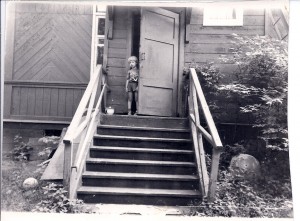

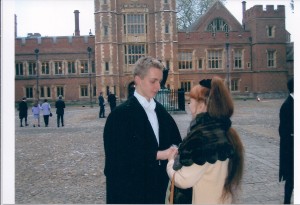
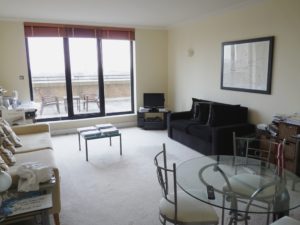
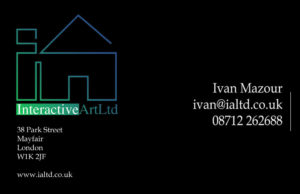
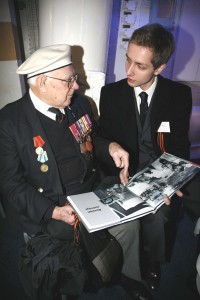
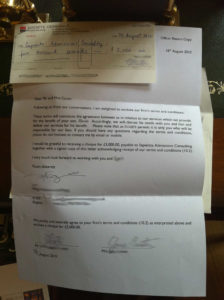
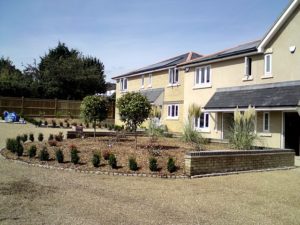
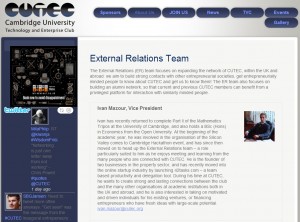
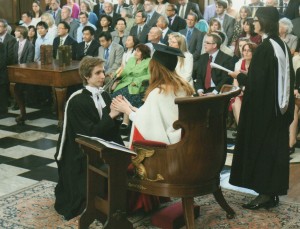
19 comments
Dear Mr Mazour,
As curious person I had intention to do more research about the company and I found your blog. I read through it and more I read more impressed I became. Your life story is amazing and breath-taking. Your successful business story is inspiring and it shows that everything is possible even beyond impossible if one works really hard.
I really appreciate given chance to meet you and an opportunity of an interview. I wish you best luck in your business and achievements.
Katerina
Just to say he is an amazing young man, with great integrity, strength and courage.
Hands down the best written “About” section I’ve ever read. Fantastic journey so far and looking forward to hearing about what I’m sure will be great things to come!
Great story and life!
Thanks Alex. Hopefully there will be even more to come!
Nice story man
Thanks for reading Adeel!
Hi Ivan,
It’s genius. Well done
I am about to redo mine – beingchrisrobson.com and I was very energised by this.
kind regards
Chris
Thanks Chris – look forward to reading it when it’s up!
Awesome work Ivan. Looking forward to seeing how Ometria develops. Just read your post on how to build a B2B Unicorn– it’s a question that I’m also very interested in at the moment!
Thanks a lot John. Let’s see if we can build these Unicorns!
Ivan,
Did you know that Arctic Convoy Veteran Gordon Long has recently died?
Do you know that your book on the Convoys is very much appreciated in our exhibition shop at Loch Ewe, NW Highlands of Scotland?
I hope we will welcome you some day to our project to help us build a museum to honour those wonderful men and women in the allied forces and in the USSR who fought fascism in WWII.
Best wishes for your continuing success.
George, Chair of the Russian Arctic Convoy Museum Project
I’m saddened to hear that George. Gordon and I corresponded by post regularly, and I still have a photo of when he and I met and I was able to give him a copy of my book in person. I hope to make it up to Loch Ewe soon. All the very best for the coming year and beyond.
Congratulations on your many achievements which have only come through commendable determination and hard work. What do you think, however, about our greatest trained minds in the UK going into property? Property is a capital sink, sucking money that could be invested into new technologies and enterprises. Selling bricks to one another with ever increasing amounts of borrowed money does not produce anything. I am so pleased that you are moving on to angel investing in technology now.
I completely agree – the UK found itself caught in a property bubble for close to a decade, where the obvious industry to go into was always property. The same then happened in banking. I think that now actually there is huge opportunity for young people to go into technology, and into entrepreneurship. The support that is there now simply wasn’t available in previous decades, and now that it is I am hopeful for great progress in the coming years, with most hard-working people training themselves to be entrepreneurs and run businesses that add value.
I have already left a message on your blog. But I am truly impressed with your story which is very inspiring. I run my own overseas study consultancy in Mumbi, India and I know what hard work it is to do the applications and write personal statements for overseas study. And I am impressed you were doing it at such a young age.. . . May God Bless you and you get the best from life..Many more milestones to go.. for me to read.. Your journey is inspiring. Will make my son read it…
Thank you for your very kind words – I hope that you find success with your overseas study consultancy, it is a great business that helps people truly improve their lives.
Great and enticing story. You’ve got a new appreciator. I run a business group for young entrepreneurs – early stage – and would relish the chance to have you attend our next meeting. Thanks to you I also discovered Wait But Why/Hi
As a Russian-born Berlin-based entrepreneur I am super excited with your great story, Ivan! Really glad to read stories about Russian-born people achievements around the globe 🙂 Wish you all the best!